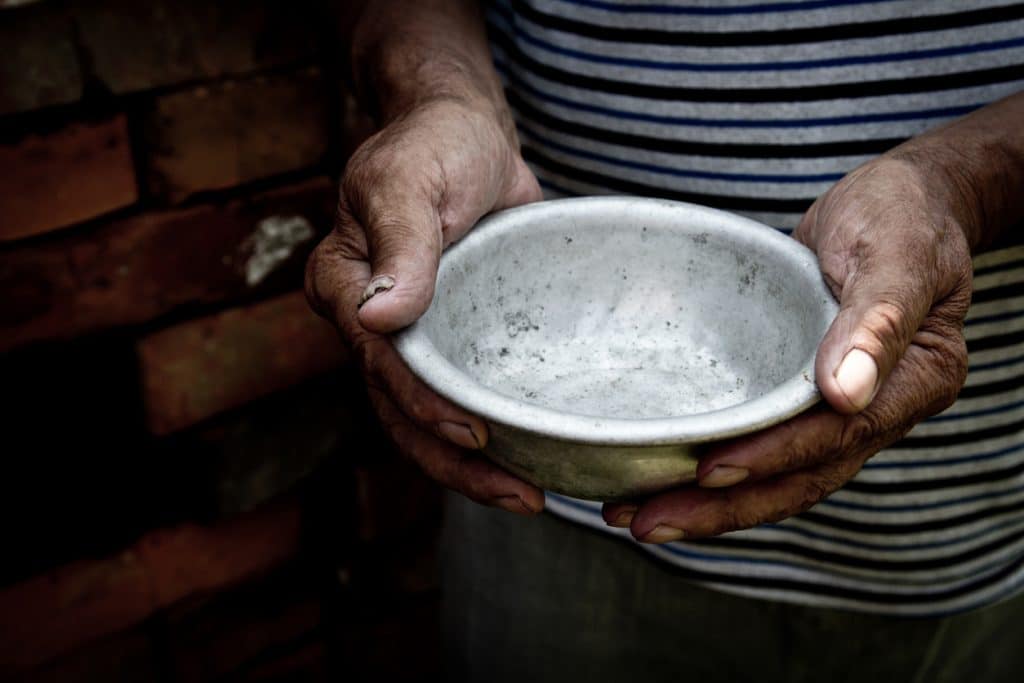
Jenan Taylor
30 December 2022
People in the world’s most fragile and conflicted regions are in danger of experiencing extreme need in 2023, but few in the international community are paying attention, humanitarian groups say.
The United Nations World Food Programme said 350 million people across the globe faced a hunger crisis, the largest in modern history, and it anticipated worse was to come.
Anglican Overseas Aid and Micah Australia said widespread hunger was among the most pressing issue identified in 2022, but that media focus tended to be on the Ukraine crisis.
Read more: Aid needed to supply food, goods, advocacy to fleeing Ukrainians
Micah Australia said Horn of Africa countries were among the worst affected by the global hunger disaster, and that Somalia, where famine was about to be declared, was top of the list.
Government relations officer Eliza Palmer said Afghanistan, Ethiopia, South Sudan and Yemen were the countries also experiencing the most distress.
Ms Palmer said people were already dying while hundreds of thousands in those nations faced the highest level of food insecurity.
Development community publication Devex reported in June that a World Food Programme Somalia director had said the situation was so dire that the organisation needed to choose between those who were hungry and those who were starving when it came to providing food aid.
But Ms Palmer said she was shocked at how little media coverage was being given to the crisis.
Anglican Overseas Aid said global inflation and COVID-19 pandemic related supply constraints, as well as rising food and fuel costs stemming from Russia’s invasion of the Ukraine had led to the unfolding situation.
Read more: Anglican efforts in Africa weakened by Ukraine crisis
Disaster response coordinator Tim Hartley said a number of countries had faced four or five years of very poor food production because of climate change related weather.
“Kenya and Somalia have been having droughts, while South Sudan has experienced its worst floods in more than 50 years,” Mr Hartley said. “That has displaced hundreds of thousands of people and destroyed their food crops.”
But border and internal conflicts had also affected farming, and further exacerbated the region’s problems, he said.
Both organisations said that those pressures had also given humanitarian field staff plenty of challenges.
Mr Hartley said spiking inflation, as well as the degraded infrastructure of some places was making it harder for response teams to travel to and operate in the hard hit areas.
“It has become a lot more expensive for us to do our job, yet it’s vital that we get there to conduct the proper needs assessments, and distribution monitoring, and all of those kinds of things. We can’t just send food relief without accompaniment,” he said.
Mr Hartley said because of the extra costs, the organisation sometimes had to focus on helping fewer communities.
He said the lack of media coverage also made it harder to garner support from Australians, particularly those who were also giving financial aid to people who were experiencing hardship from local disasters like the recent floods.
Read more: Call for donations for flood-hit churches to help communities
Ms Palmer said another urgent humanitarian concern was the increasing repression of women’s and girls’ rights in Afghanistan.
She said alongside not having enough to eat, women and girls older than primary school age in Afghanistan were experiencing heavy education restrictions.
When the Taliban returned to power in 2021, it stopped girls from going to secondary school.
In mid-December this year, it banned Afghan women from attending universities.
A 2017 Human Rights Watch report also suggested that only half of the country’s girls were literate and that because of gender norms that didn’t value girls’ education, some were kept out of school altogether.
Ms Palmer said she had heard aid agencies express concern that many impoverished families in particular were likely to not send girls to primary school either, so that they could work to help provide financial support.
She said agencies had also raised fears about the possibility of young girls being forced into marriage to help secure food.
“Because education is being stunted at such a young age, there are many trickle-down effects that are going to be an issue 20 years from now, even if the Taliban were to retreat,” Ms Palmer said.
Anglicans who wish to donate towards Anglican Overseas Aid’s global hunger relief efforts can do so via the Emergency Action Alliance. They can also contribute to Micah Australia’s efforts to push for more Australian government action at Help Fight Famine.
For more faith news, follow The Melbourne Anglican on Facebook, Twitter, or subscribe to our weekly emails.







